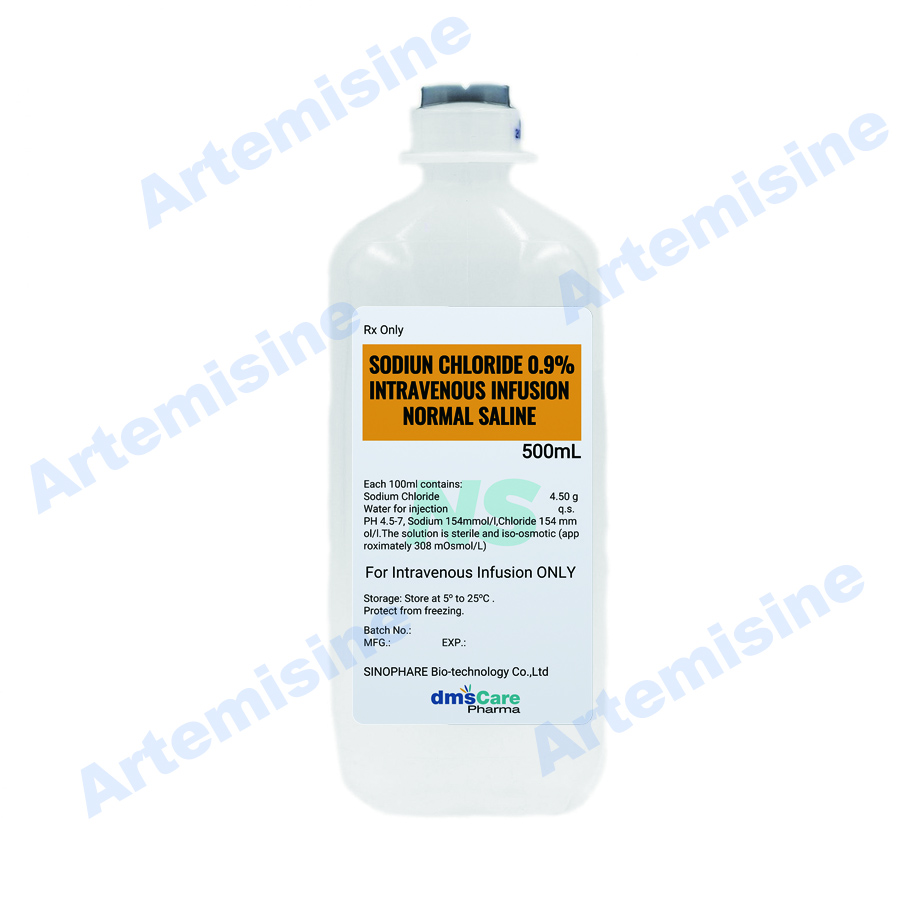Product Description
Product Name:
0.9% Sodium Chloride Injection
Contains:
0.9% Sodium Chloride
Package:
500 ml; 1000 ml;
CLINICAL PHARMACOLOGY
Sodium Chloride Injection USP provides electrolytes and is a source of water for hydration. It is capable of inducing diuresis depending on the clinical condition of the patient.
Sodium, the major cation of the extracellular fluid, functions primarily in the control of water distribution, fluid balance, and osmotic pressure of body fluids. Sodium is also associated with chloride and bicarbonate in the regulation of the acid-base equilibrium of body fluid.
Chloride, the major extracellular anion, closely follows the metabolism of sodium, and changes in the acid-base balance of the body are reflected by changes in the chloride concentration.
INDICATIONS AND USAGE
This intravenous solution is indicated for use in adults and pediatric patients as a source of electrolytes and water for hydration.
0.9% Sodium Chloride Injection USP is indicated for extracellular fluid replacement, treatment of metabolic alkalosis in the presence of fluid loss and mild sodium depletion.
0.9% Sodium Chloride Injection USP is also indicated for use as a priming solution in hemodialysis procedures and may be used to initiate and terminate blood transfusions without hemolyzing red blood cells.
Sodium Chloride Injection USP is also indicated as a pharmaceutic aid and diluent for the infusion of compatible drug additives. Refer to prescribing information accompanying additive drugs.
CONTRAINDICATIONS
This solution is contraindicated where the administration of sodium or chloride could be clinically detrimental.
WARNINGS
The administration of intravenous solutions can cause fluid and/or solute overload resulting in dilution of serum electrolyte concentrations, overhydration, congested states or pulmonary edema. The risk of dilutional states is inversely proportional to the electrolyte concentration. The risk of solute overload causing congested states with peripheral and pulmonary edema is directly proportional to the electrolyte concentration.
Solutions containing sodium ions should be used with great care, if at all, in patients with congestive heart failure, severe renal insufficiency, and in clinical states in which there is sodium retention with edema. In patients with diminished renal function, administration of solutions containing sodium ions may result in sodium retention.
Infusion of isotonic (0.9%) sodium chloride during or immediately after surgery may result in excessive sodium retention. Use the patient’s circulatory system status as a guide.
